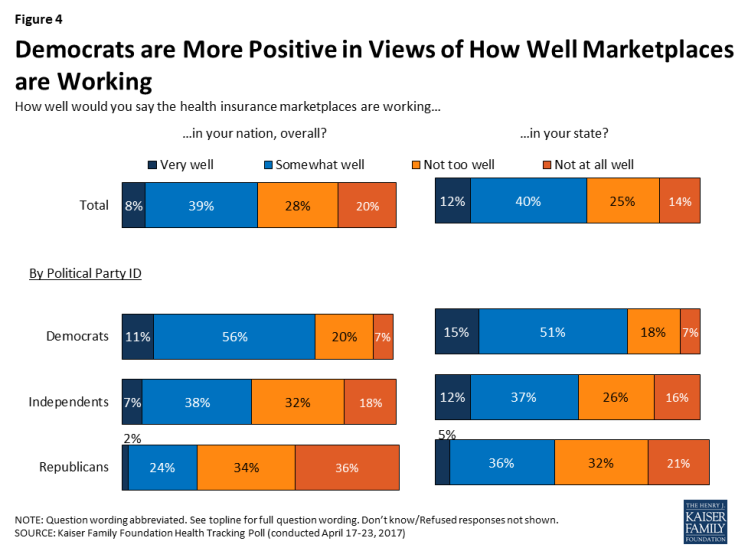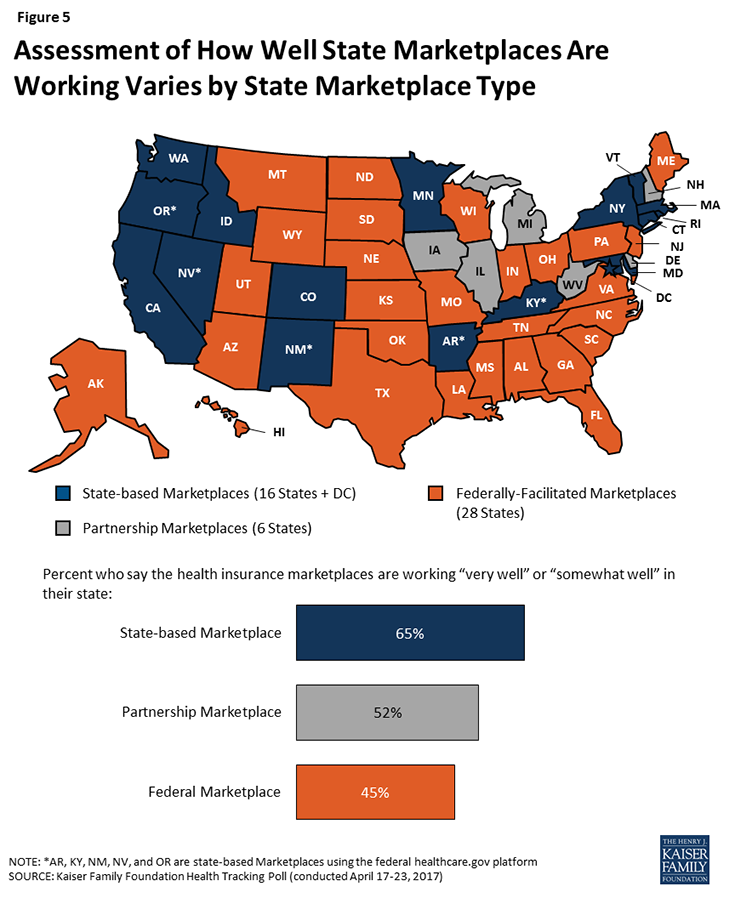Kaiser Health Tracking Poll - Late April 2017: The Future of the ACA and Health Care & the Budget
Recently, some major health insurers have announced they are withdrawing from the ACA exchanges — marketplaces where people who do not have employer-sponsored health insurance can buy coverage. The late-April Kaiser Health Tracking Poll gauged the public’s awareness of and attitudes about the status of the health insurance marketplaces.
Visibility of News About Insurers Withdrawing from Marketplaces
Half of the public (47 percent) say they have been closely following news about health insurance companies’ decisions on whether or not to sell plans through the marketplaces – with about one in ten saying they are following the news “very closely.”
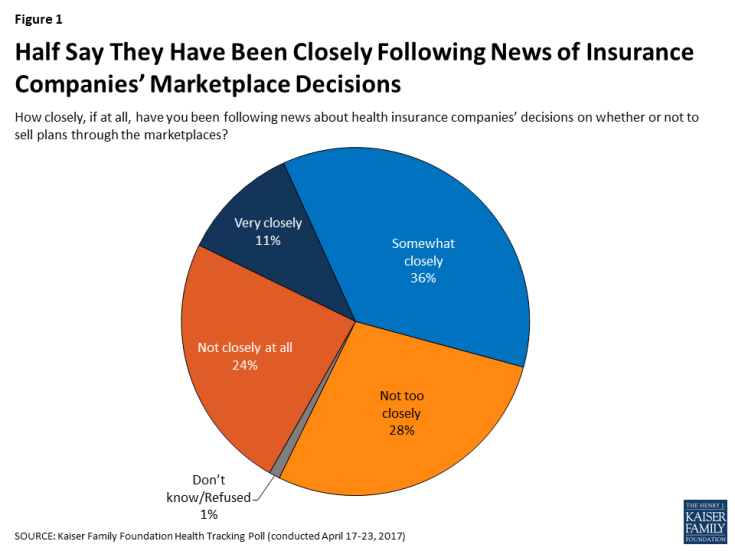
Figure 1: Half Say They Have Been Closely Following News of Insurance Companies’ Marketplace Decisions
Most See Insurer Withdrawals as a Big Problem Across the Country
Overall, nearly seven in ten (65 percent) say health insurance companies choosing not to sell insurance plans in certain marketplaces is a “big problem” across the country with an additional 21 percent saying it is a “small problem.” When asked about their local area, 43 percent say it is a “big problem,” with another one-third saying it is a “small problem.” These perceptions are similar across parties but there are differences depending on whether individuals are closely following news about health insurance companies’ decisions. Larger shares of those who are closely following the news say it is a “big problem” both across the country (78 percent vs. 54 percent) and in their local area (54 percent vs. 33 percent).
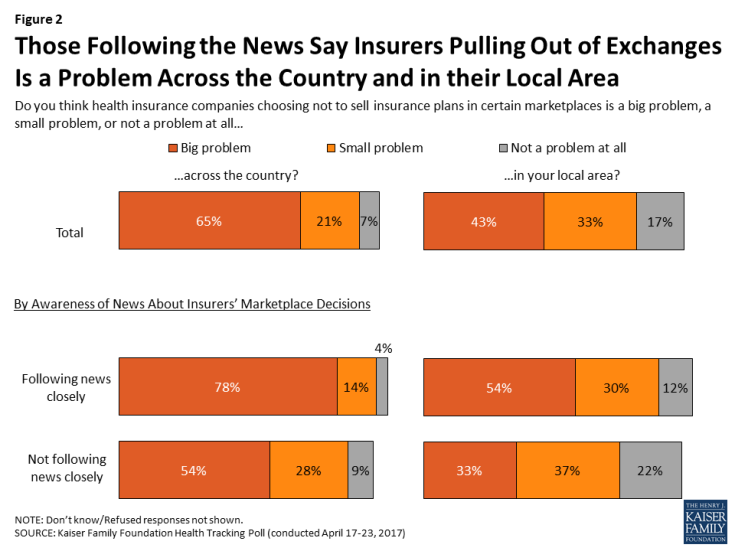
Figure 2: Those Following the News Say Insurers Pulling Out of Exchanges Is a Problem Across the Country and in their Local Area
Views of How Marketplaces are Working
Americans are divided on how well they think the health insurance marketplaces are working in their own state and in the nation, overall. About half (53 percent) of individuals say the health insurance marketplace in their own state is working well while about four in ten say it is working either “not too well” (25 percent) or “not at all well” (14 percent). This is slightly more positive than the rating given to health insurance marketplaces in the nation, overall, with nearly half saying the marketplaces in the nation overall are not working well.
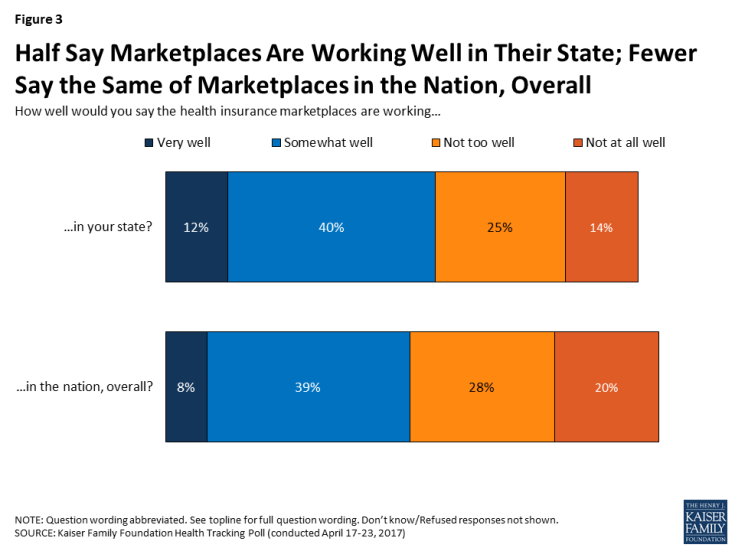
Figure 3: Half Say Marketplaces Are Working Well in Their State; Fewer Say the Same of Marketplaces in the Nation, Overall
Differences in How Public Views Marketplace Functionality
In fact, the share who say the health insurance marketplaces are working well in their own state and in the nation, overall, has actually increased slightly since September 2016.1 But, like previous surveys, party identification as well as location still drive attitudes towards the health insurance marketplaces.
Overall, Democrats are more likely to say the marketplaces in their own state (66 percent) and in the nation overall (66 percent) are working well. And while a larger share of Republicans say the marketplaces in their own state are working well than say the same about in the nation, overall (41 percent v. 26 percent, respectively), the share who say they are working well is smaller than the share of independents and Democrats who say the same.
In addition, individuals living in states that have developed their own state-based marketplace are more likely to say the health insurance marketplace in their own state is working well Individuals living in states with state-based marketplaces are more positive in their evaluations with 65 percent saying the health insurance marketplace in their state is working either “very” or “somewhat” well. This is more positive than those living in states with a state-federal partnership (52 percent) but significantly more positive than those living in states that have not developed their own state-based marketplace and are using the federal marketplace (45 percent). These differences hold even when controlling for demographic factors that tend to predict support for the ACA (age, education level, party identification, gender, and race/ethnicity).

